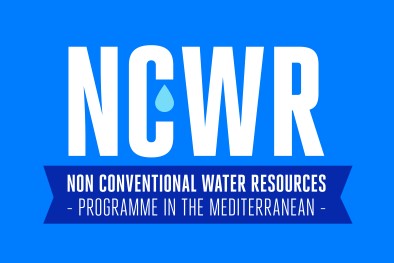The Mediterranean is among the most arid regions in the world. Hosting more than 50% of the world’s ‘water poor’ population*, which means 180 out of its 460 million inhabitants, the region holds only 3% of the world’s freshwater resources. The Mediterranean islands are no exception: Malta and Cyprus are the water poorest countries in Europe, while a large number of Greek and Italian islands depend on costly desalination and even water transfers by tankers to meet their needs.
Human-made pressures, such as population growth, urbanization, water intensive touristic, agricultural, industrial activities, and misuse, steadily raise water demand. Droughts caused by climate variability and change make the situation more difficult. Such threats put life, ecosystems and efforts towards sustainable development at risk. These risks are magnified in small scale islands: the ecosystem is more fragile and water resources are less.
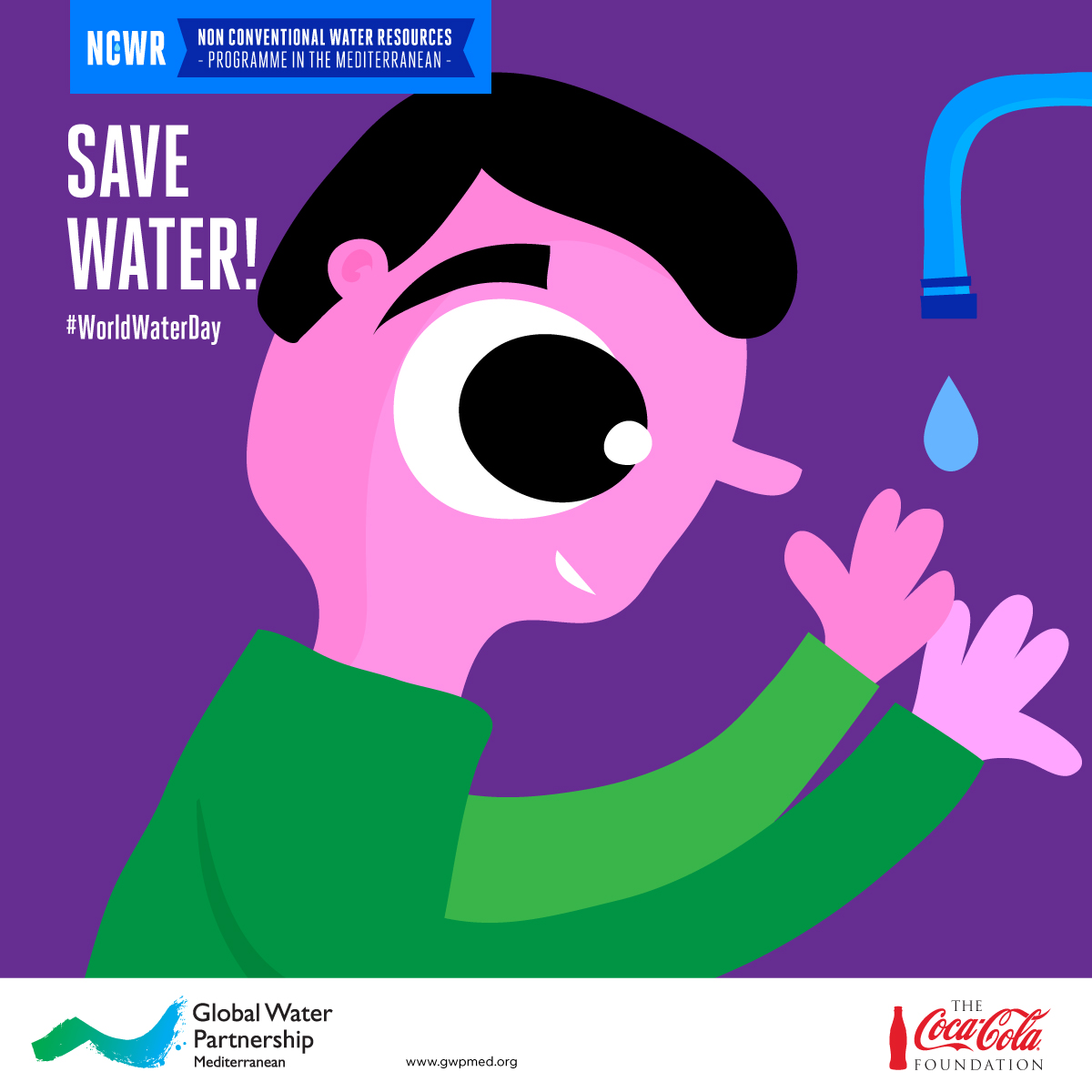
While challenges appear to be beyond one’s capacity to tackle, we can all contribute in our everyday life to alleviate pressures on water resources. In the run-up to World Water Day, March 22 -a day dedicated to observance and actions to address water challenges- let’s explore feasible actions that each one of us can take at home or in our community to save water. Harvesting rainwater can provide water for gardening, toilet flushing or washing our car. Capturing stormwater can offer enough water to landscape our neighborhood, while it controls flooding, especially in cities. Recycling greywater generated from washbasins, showers and washing machines can provide water for toilet flushing and landscaping. You can find everyday solutions and their multiple benefits here.
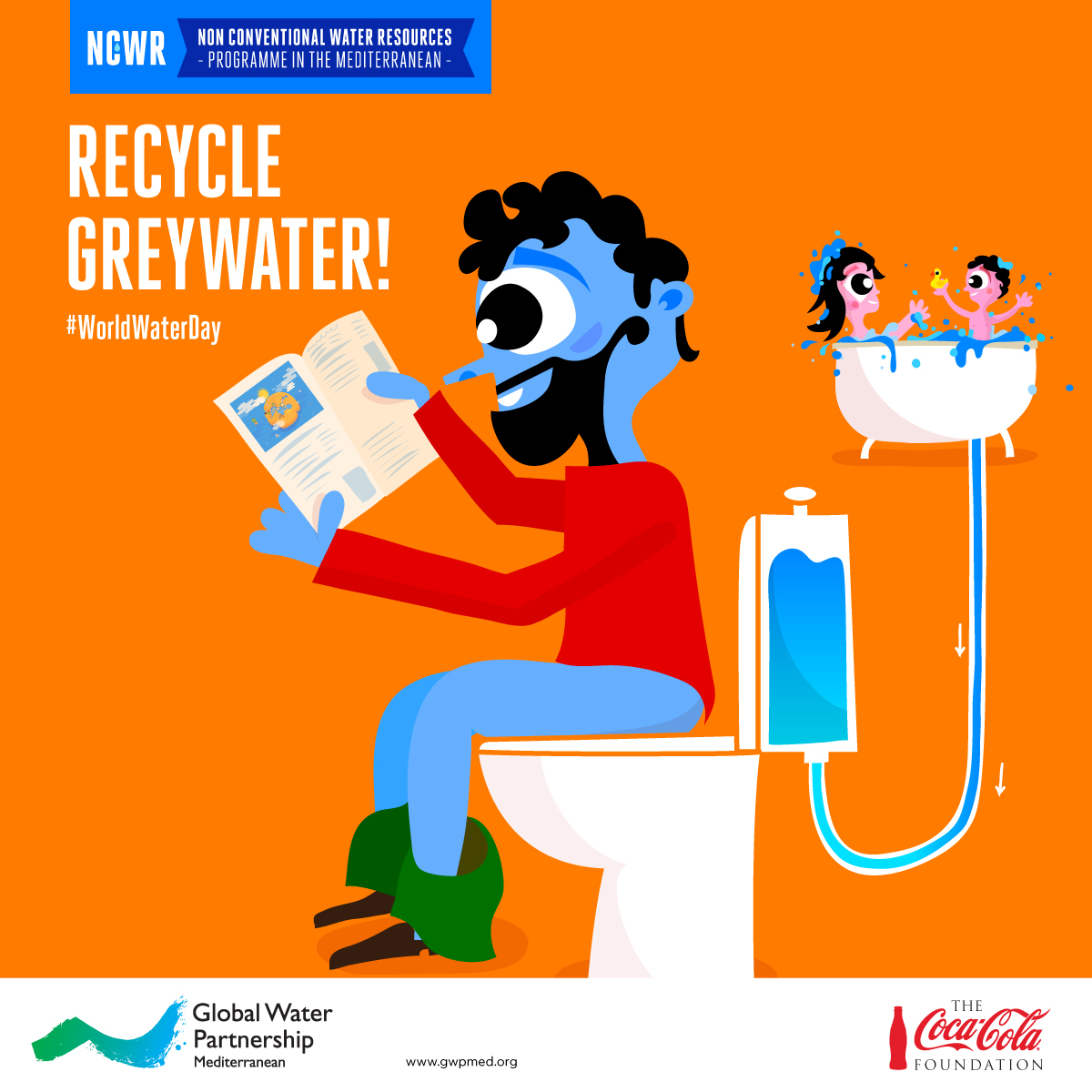
The “Non Conventional Water Resources (NCWR) Programme in the Mediterranean” addresses critical water challenges in Mediterranean islands. Developed by the Global Water Partnership Mediterranean (GWP-Med) with the support of The Coca-Cola Foundation, it started in 2008, in the Cyclades islands, in Greece. People in Santorini, one of the global landmarks of history and natural beauty, harvest rainwater since the antiquity. Their home cisterns, of unique architecture and craftsmanship, used to collect enough rainwater to cater for the family needs. This traditional practice was slowly abandoned with the expansion of the water supply network. But the limited freshwater resources cannot cover the needs of new lifestyle and increasing tourism. While mainstream water works can provide potable water, the Programme showcases revived traditional as well as innovative solutions for secondary water uses.
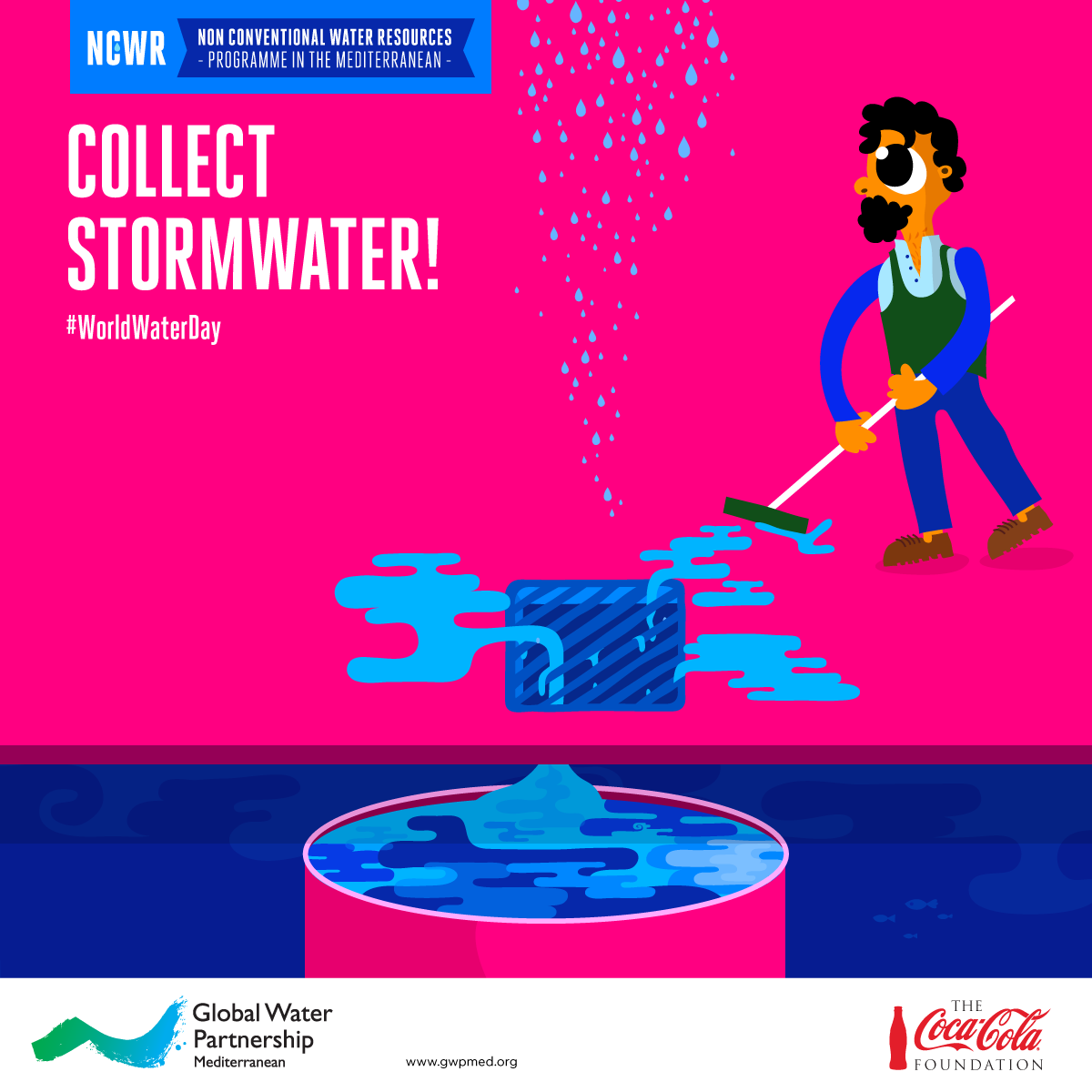
Engaging the local community, the Programme creates a new water culture of sensitized citizens who comprehend the water scarcity challenges and respond by saving water and adopting practical, ‘green’ and cost-effective solutions. Education, training, and awareness raising are also in the focus. Students participate in hands-on activities; teachers are trained with specially developed educational material; local technicians enrich their knowledge to install or retrofit such technologies; local authorities build their capacity to manage their water resources in a sustainable way.
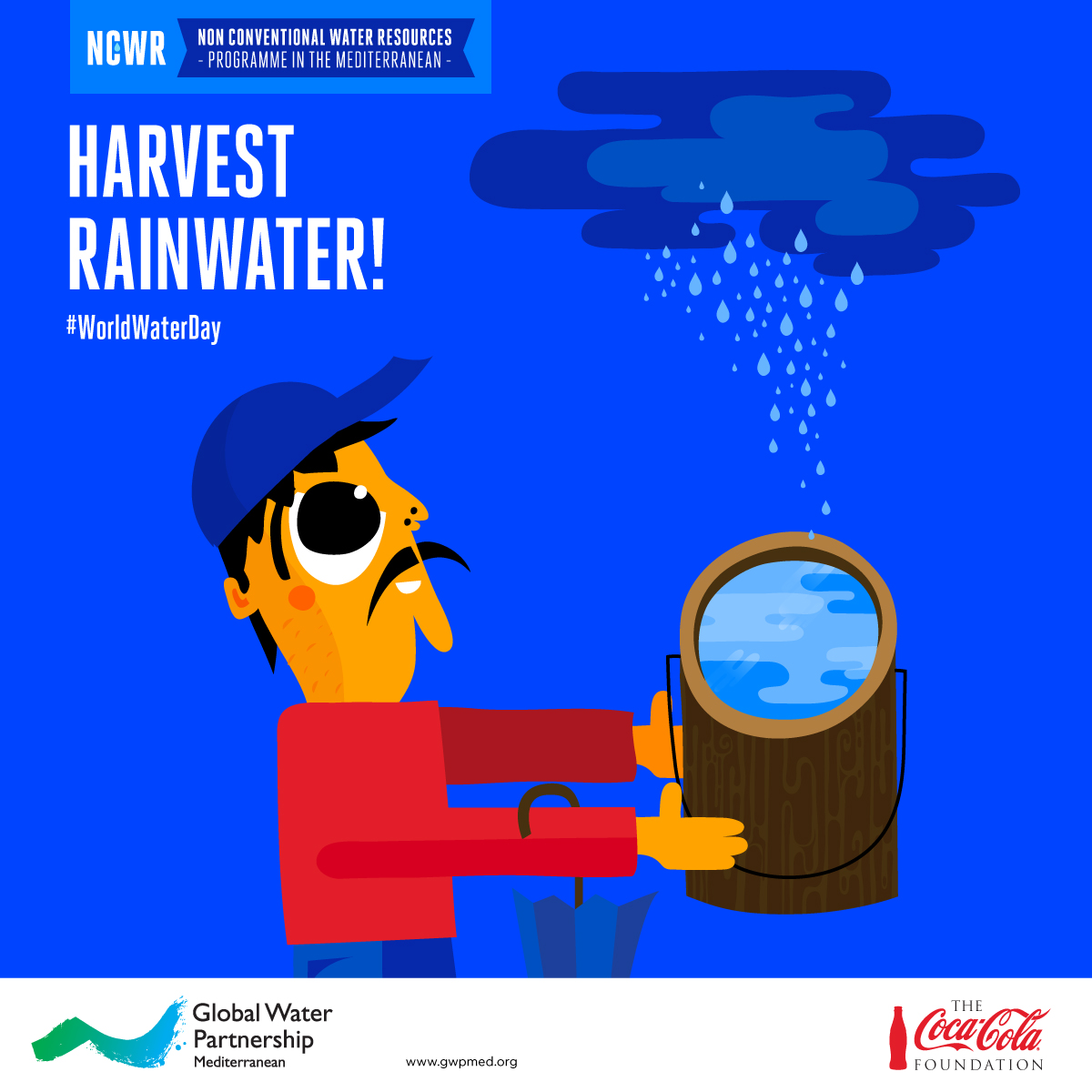
Investing more than $5.25 million in 2008-2018, through The Coca-Cola Foundation grants, and co-funded by the Greek Coca-Cola system’s “Mission Water” environmental programme and the Maltese Ministry for Gozo, the Programme is designed and implemented by GWP-Med. Working closely with the local authorities and civil society in the Greek and Maltese Islands, in Cyprus and in Sardinia, the Programme has so far reached out to 32 Mediterranean islands. More than 110.000 inhabitants, many of which in very small, remote islands, benefit from its 86 installed applications. But it is not only the saved water volume that matters, although it is enough to cover the needs of a small town of 3,500 residents for a whole year. It is mainly the proven potential to decrease the water demand by water saving, reuse, harvesting and increased efficiency. Working also at a political level, the Maltese example of focusing on non-conventional water resources in their new Water Management Plan for the Maltese Islands (2016) is a solid step towards local water security. Step by step, a new mindset on water consumption patterns is on the rise in Mediterranean islands.
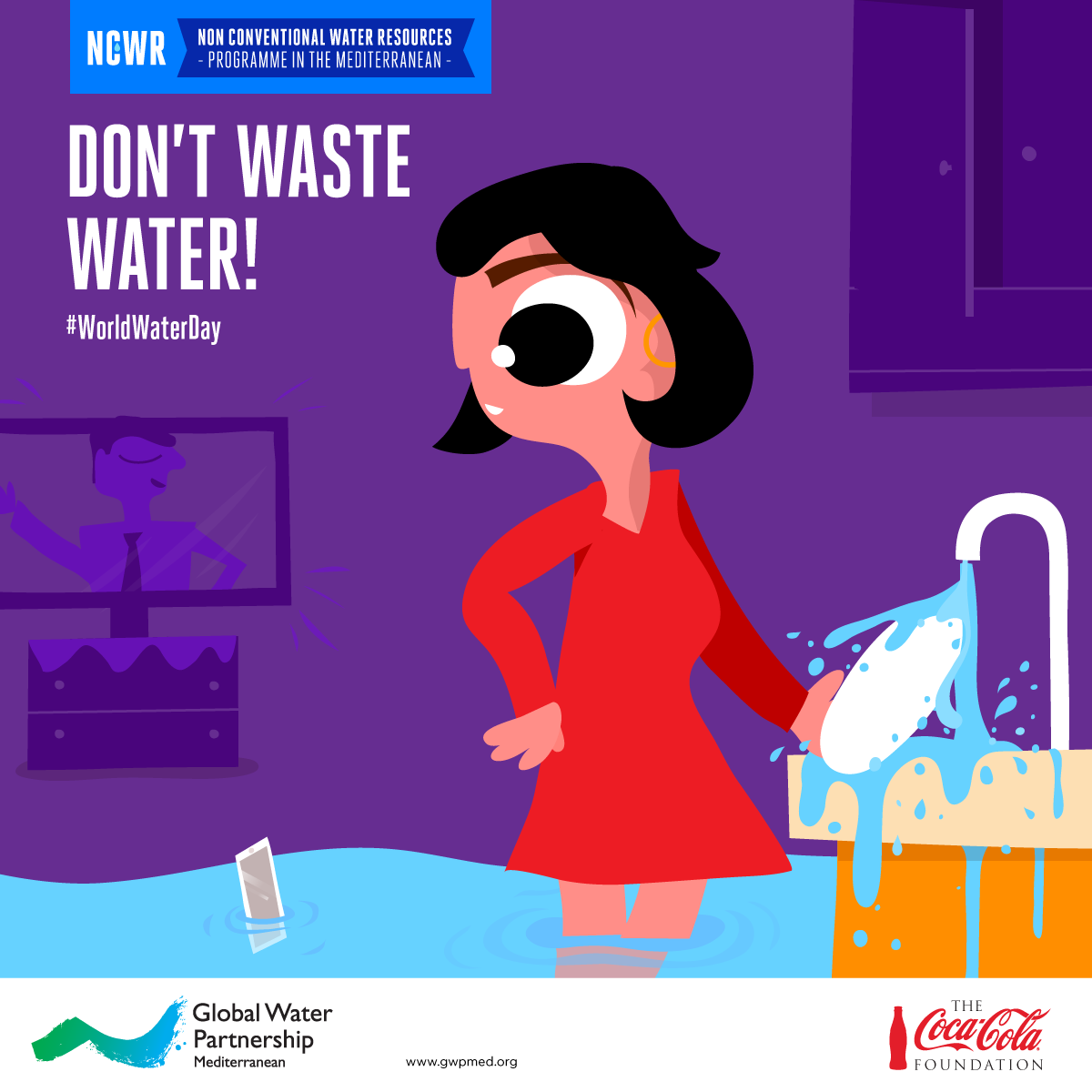
For its holistic approach and its replication potential in other water scarce communities in the world, the NCWR Programme received the 2nd Global Award as a Water Showcase at the 7th World Water Forum (April 2015, Rep. of Korea), the world’s largest event on water held every three years.
Setting a global paradigm, the NCWR Programme and its partners invite you to act at home and in your community for a water secure world!
---------------------------------------------
*Definition (by Falkenmark, 1989): ‘Water poor’ are those among our fellow citizens disposing less than 1000 m3/person/year. The global threshold is 1700 m3/person/year.
